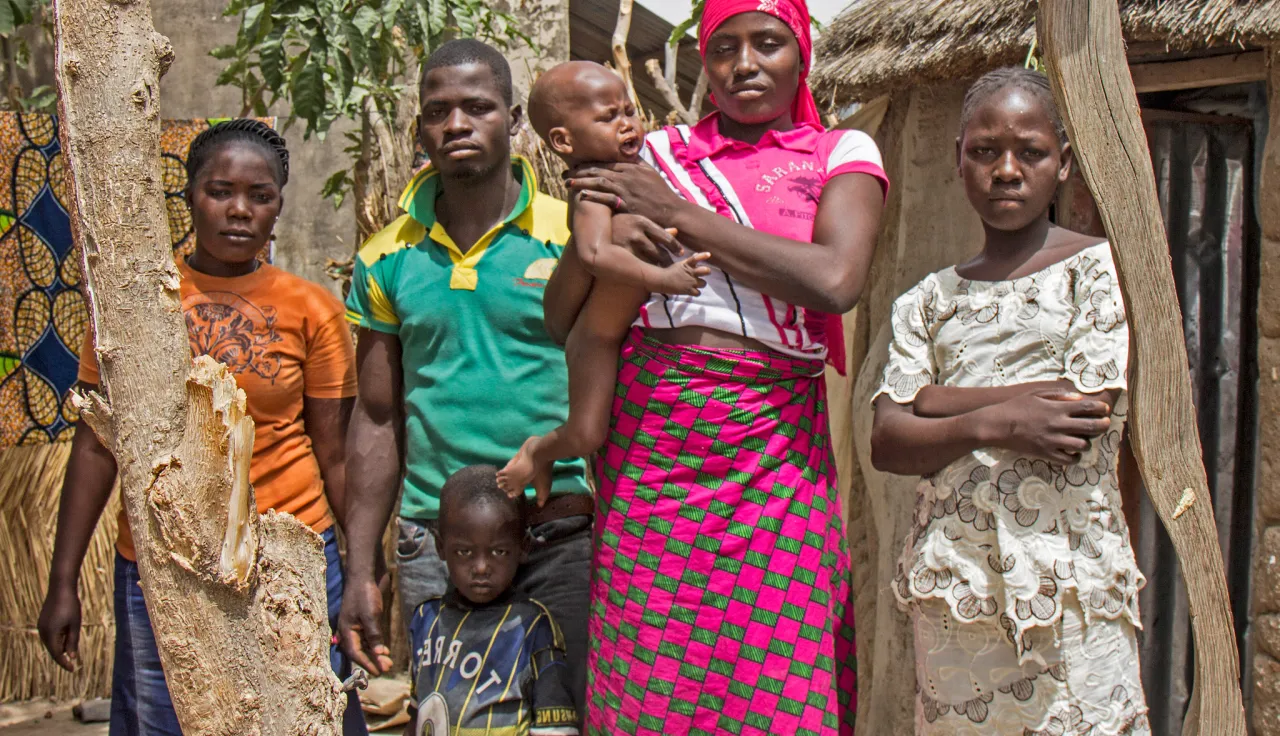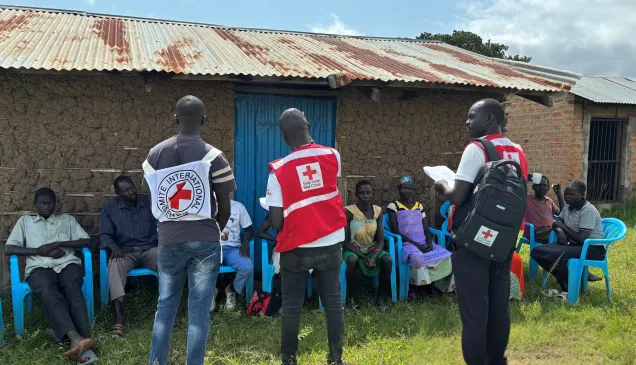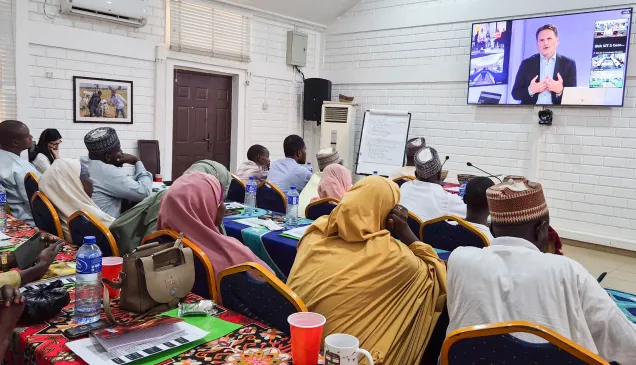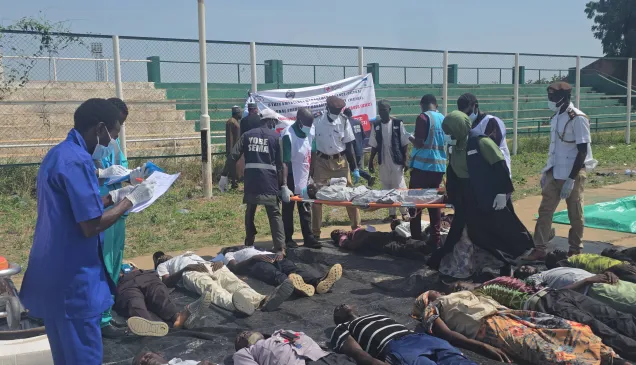Nigeria: Food and water

Many refugees and internally displaced people say that a lack of food is their main concern. Some families have just a tiny bit of rice every day to survive on. With so many people uprooted and gathering in towns like Yola, or Maiduguri in Borno State, the existing infrastructure is struggling to cope.
When violence descended on her home village, Happy Yusuf, 39, and her children fled to the mountains. They were safe, but they had no food or clean water.
"The suffering was too much," she says. "I was exhausted and had to breast feed my little boy."
After they fled their mountain hideaway, a woman offered Happy and her children a place to stay, food and water. But after they had spent a month in the village of Kerawa, it too was attacked, and Happy fled to Yola. They are eager to return to their village of Michika. But their home no longer exists.
"My husband went back to Michika one week ago to rebuild our house. It was bombed during the attack," she says.

Happy stayed in three different villages and had to seek refuge in Cameroon before arriving in Yola and finding her husband again. CC BY-NC-ND / ICRC / Jesus Serrano Redondo
Her husband told her that the landscape in Michika was horrifying. "Our houses, the bank, the shops, the schools, our church and the clinic were destroyed. He told me that it looks like a ghost town."
Happy was at church in Michika last August when she heard gunshots. She knew she and her family had to run away if they were to survive. They hid in the mountains with about a hundred others.
Today, in Yola, she continues to struggle. The family needs rice, beans, cooking pots and a mattress to sleep on. And she worries her children will catch malaria.

Women queue to collect food and other essentials in Maiduguri, Nigeria. CC BY-NC-ND / ICRC / Jesus Serrano Redondo
"The challenge now is that the food they give us is not enough for everyone. There are some people here who have had no food since they came to Yola. We help them by sharing what we have with them," says Abdul Aziz Muhammed.
"Our needs are many but first of all we need food. Secondly, we need pots with which we can cook our food," says Hafeesu Adamu.
ICRC interviews, Yola, Nigeria, March 2015



